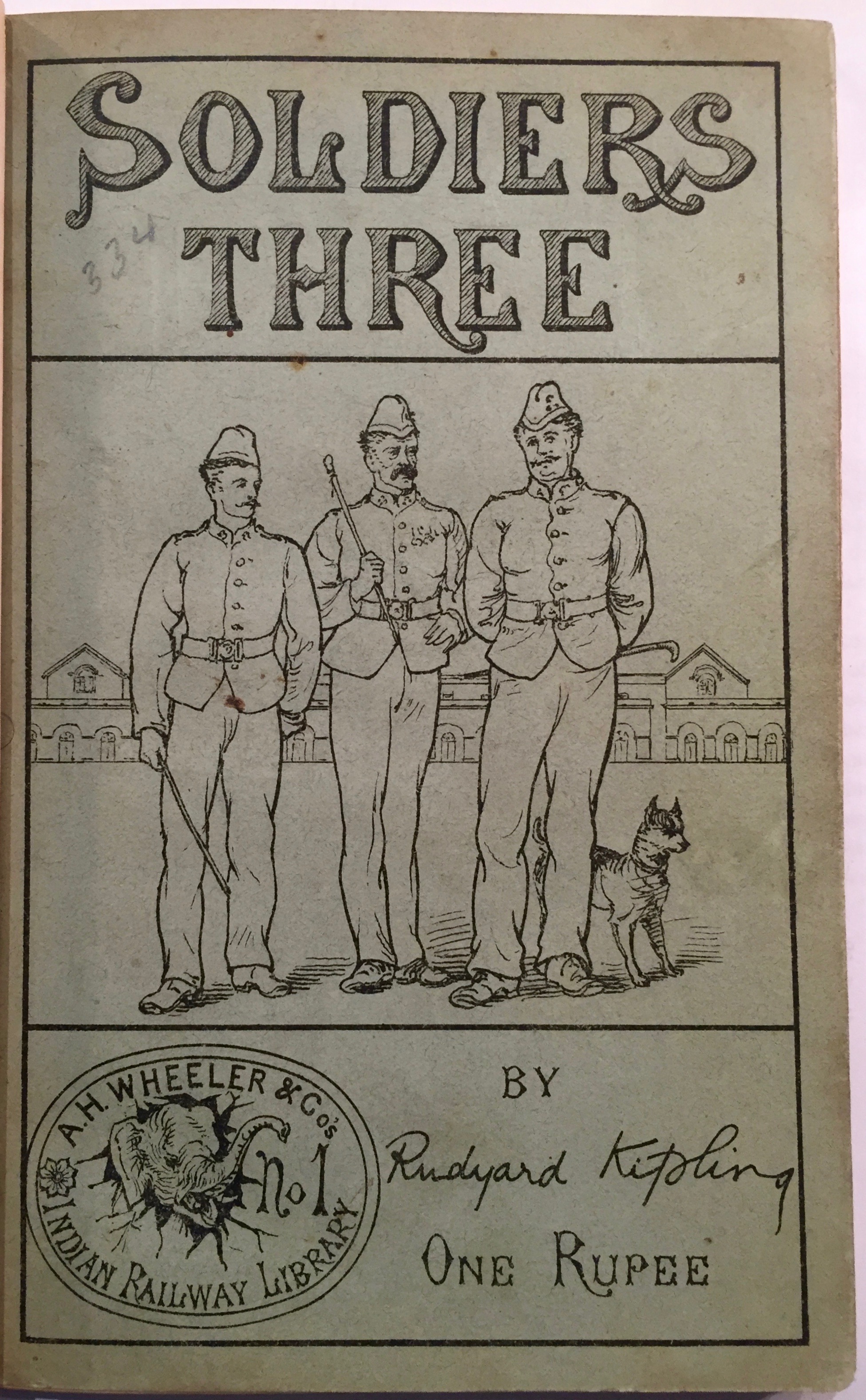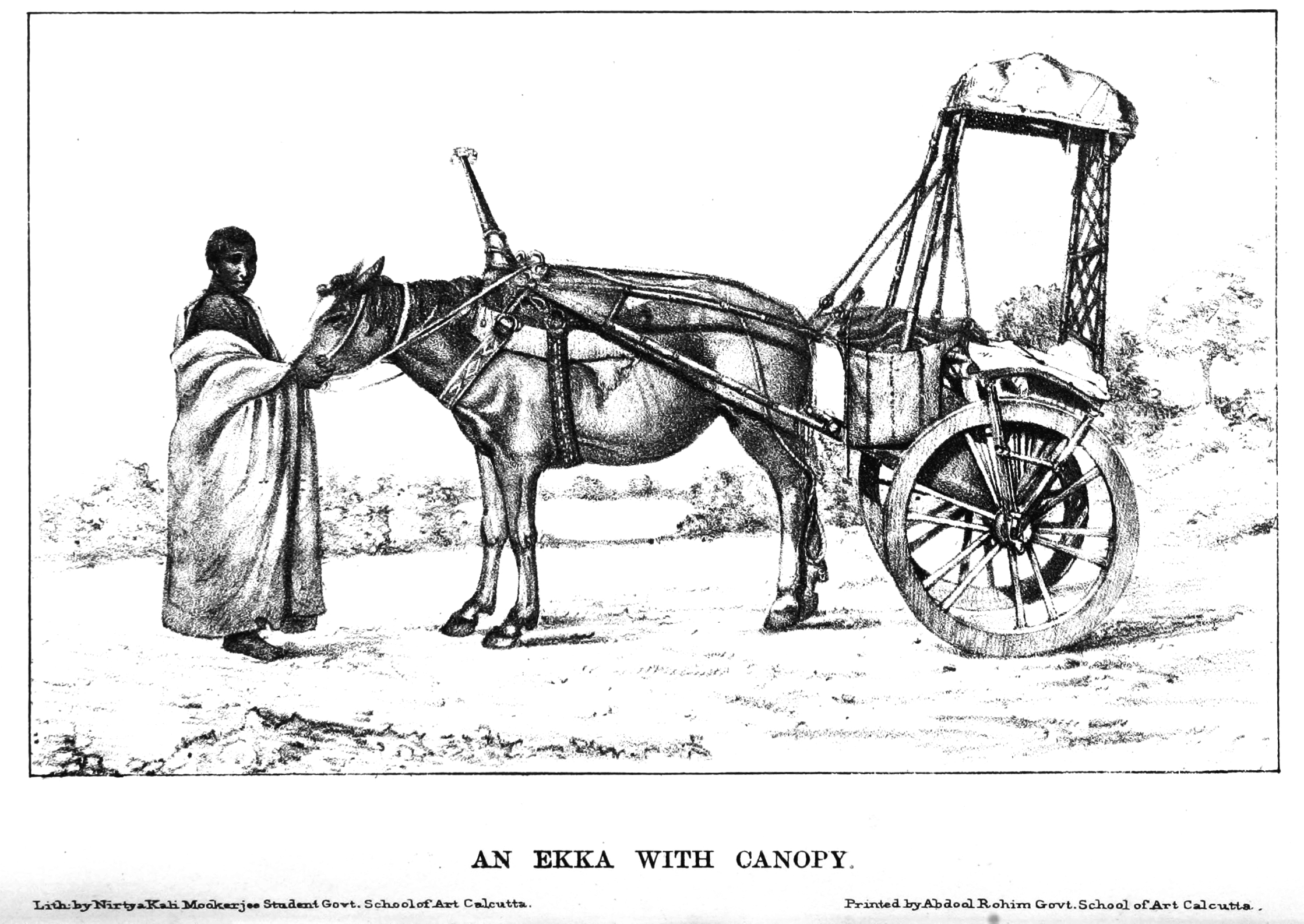|
The Three Musketeers (short Story)
"The Three Musketeers" is a short story by Rudyard Kipling which introduces three fictional British soldiers serving in India in the later nineteenth century: the privates Learoyd, Mulvaney and Ortheris. These characters appear in many early Kipling stories. "The Three Musketeers" was first published in the ''Civil and Military Gazette'' on 11 March 1887. It appeared in book form in ''Plain Tales from the Hills'' (1888). Narrated by the three privates—mostly Mulvaney, the loquacious Irishman, and Ortheris —''The Three Musketeers'' tells the story of how the three contrive not only to 'protest' (like the junior officers) against a proposed special parade requested by a visiting grandee, Lord Benira Trigg, but to have it cancelled and humiliate the Lord ''and'' receive a five-pound note apiece from him, for being "a ''h''onour to the British Harmy". Trigg is a distinguished tourist, a peer on a 'fact-finding mission' (as we might now say) to write a book. "His particular vice� ... [...More Info...] [...Related Items...] OR: [Wikipedia] [Google] [Baidu] |
Rudyard Kipling
Joseph Rudyard Kipling ( ; 30 December 1865 – 18 January 1936)''The Times'', (London) 18 January 1936, p. 12. was an English novelist, short-story writer, poet, and journalist. He was born in British India, which inspired much of his work. Kipling's works of fiction include the ''Jungle Book'' duology ('' The Jungle Book'', 1894; '' The Second Jungle Book'', 1895), ''Kim'' (1901), the '' Just So Stories'' (1902) and many short stories, including "The Man Who Would Be King" (1888). His poems include " Mandalay" (1890), " Gunga Din" (1890), "The Gods of the Copybook Headings" (1919), " The White Man's Burden" (1899), and "If—" (1910). He is seen as an innovator in the art of the short story.Rutherford, Andrew (1987). General Preface to the Editions of Rudyard Kipling, in "Puck of Pook's Hill and Rewards and Fairies", by Rudyard Kipling. Oxford University Press. His children's books are classics; one critic noted "a versatile and luminous narrative gift".Rutherford, Andrew ( ... [...More Info...] [...Related Items...] OR: [Wikipedia] [Google] [Baidu] |
Learoyd, Mulvaney And Ortheris
Rudyard Kipling introduces, in the story ''The Three Musketeers'' (1888) three characters who were to reappear in many stories, and to give their name to his next collection '' Soldiers Three''. Their characters are given in the sentence that follows: "Collectively, I think, but am not certain, they are the worst men in the regiment so far as genial blackguardism goes"—that is, they are trouble to authority, and always on the lookout for petty gain; but Kipling is at pains never to suggest that they are evil or immoral. They are representative of the admiration he has for the British Army—which he never sought to idealise as in any way perfect—as in the poems collected in ''Barrack-Room Ballads'' (1892), and also show his interest in, and respect for the "uneducated" classes. Kipling had great respect for the independence of mind, initiative and common sense of the three—and their cunning. The three are distinguished by their accents, and by Kipling's use of standard stere ... [...More Info...] [...Related Items...] OR: [Wikipedia] [Google] [Baidu] |
Soldiers Three
''Soldiers Three'' is a collection of short stories by Rudyard Kipling. The three soldiers of the title are Learoyd, Mulvaney and Ortheris, who had also appeared previously in the collection '' Plain Tales from the Hills''. The current version, dating from 1899 and more fully titled ''Soldiers Three and other stories'', consists of three sections which each had previously received separate publication in 1888; Learoyd, Mulvaney and Ortheris appear only in the first section, which is also titled ''Soldiers Three''. The books reveal a side of the British Tommy in Afghanistan rarely seen in the Twilight of the British Empire. The soldiers comment on their betters, act the fool, but cut straight to the rawness of war in central Asia as the British began to loosen their Imperial hold. Publication history The first publication of a collection of seven stories called ''Soldiers Three'' was as No 1 of A.H. Wheeler & Co.’s Indian Railway Library, a slim volume of 97 pages printed a ... [...More Info...] [...Related Items...] OR: [Wikipedia] [Google] [Baidu] |
Civil And Military Gazette
''The Civil and Military Gazette'' was a daily English-language newspaper founded in 1872 in British India. It was published from Lahore, Simla and Karachi, some times simultaneously, until its closure in 1963.Asiamap: Archives Retrieved September 10, 2010. History The ''Civil and Military Gazette'' was founded in and in 1872. It was a merger of '' The Mofussilite'' in |
Plain Tales From The Hills
''Plain Tales from the Hills'' (published 1888) is the first collection of short stories by Rudyard Kipling. Out of its 40 stories, "eight-and-twenty", according to Kipling's ''Preface'', were initially published in the '' Civil and Military Gazette'' in Lahore, Punjab, British India between November 1886 and June 1887. "The remaining tales are, more or less, new." (Kipling had worked as a journalist for the ''CMG''—his first job—since 1882, when he was not quite 17.) The title refers, by way of a pun on "Plain" as the reverse of "Hills", to the deceptively simple narrative style; and to the fact that many of the stories are set in the Hill Station of Simla—the "summer capital of the British Raj" during the hot weather. Not all of the stories are, in fact, about life in "the Hills": Kipling gives sketches of many aspects of life in British India. The tales include the first appearances, in book form, of Mrs. Hauksbee, the policeman Strickland, and the Soldiers Three (Pr ... [...More Info...] [...Related Items...] OR: [Wikipedia] [Google] [Baidu] |
Ekka (carriage)
An ekka (sometimes spelt hecca, ecka or ekkha) is a one-horse carriage used in northern India. ''Ekkas'' (the word is derived from Hindi ''ek'' for "one") were something like ' traps' (of 'a pony and trap'), and were commonly used as cabs, or private hire vehicles in 19th-century India. They find frequent mention in colonial literature of the period (for example, Kipling's "The Three Musketeers"). It is also said that some kind of ekkas were used by people of Indus Valley civilisation (without the spoked wheel). Ekkas were typically drawn by a single horse, pony, mule (or sometimes bullock) and had a pair of large wooden wheels (and traditionally, a wooden axle) and the carriage had a flat floor with a canopy providing shade to the passengers and the driver. Traditionally, they lacked springs and seats, with the passengers having to sit on their haunches and withstand the jolts transmitted by the wheels. John Lockwood Kipling, artist and father of Rudyard Kipling Joseph Ru ... [...More Info...] [...Related Items...] OR: [Wikipedia] [Google] [Baidu] |
Dacoit
Dacoity is a term used for "banditry" in the Indian subcontinent. The spelling is the anglicised version of the Hindi word ''daaku''; "dacoit" is a colloquial Indian English word with this meaning and it appears in the ''Glossary of Colloquial Anglo-Indian Words and Phrases'' (1903). Banditry is criminal activity involving robbery by groups of armed bandits. The East India Company established the Thuggee and Dacoity Department in 1830, and the Thuggee and Dacoity Suppression Acts, 1836–1848 were enacted in British India under East India Company rule. Areas with ravines or forests, such as Chambal and Chilapata Forests, were once known for dacoits. Etymology The word "dacoity", the anglicized version of the Hindi word ''ḍakaitī'' (historically spelled ''dakaitee''). Hindi डकैती comes from ''ḍākū'' (historically spelled ''dakoo'', Hindi: डाकू, meaning "armed robber"). The term dacoit (Hindi: डकैत ''ḍakait'') means "a bandit" according to ... [...More Info...] [...Related Items...] OR: [Wikipedia] [Google] [Baidu] |
Macmillan & Co
Macmillan Publishers (occasionally known as the Macmillan Group; formally Macmillan Publishers Ltd and Macmillan Publishing Group, LLC) is a British publishing company traditionally considered to be one of the 'Big Five' English language publishers. Founded in London in 1843 by Scottish brothers Daniel and Alexander MacMillan, the firm would soon establish itself as a leading publisher in Britain. It published two of the best-known works of Victorian era children’s literature, Lewis Carroll's ''Alice's Adventures in Wonderland'' (1865) and Rudyard Kipling's ''The Jungle Book'' (1894). Former Prime Minister of the United Kingdom, Harold Macmillan, grandson of co-founder Daniel, was chairman of the company from 1964 until his death in December 1986. Since 1999, Macmillan has been a wholly owned subsidiary of Holtzbrinck Publishing Group with offices in 41 countries worldwide and operations in more than thirty others. History Macmillan was founded in London in 1843 by Dani ... [...More Info...] [...Related Items...] OR: [Wikipedia] [Google] [Baidu] |
1887 Short Stories
Events January–March * January 11 – Louis Pasteur's anti-rabies treatment is defended in the Académie Nationale de Médecine, by Dr. Joseph Grancher. * January 20 ** The United States Senate allows the Navy to lease Pearl Harbor as a naval base. ** British emigrant ship ''Kapunda'' sinks after a collision off the coast of Brazil, killing 303 with only 16 survivors. * January 21 ** The Amateur Athletic Union (AAU) is formed in the United States. ** Brisbane receives a one-day rainfall of (a record for any Australian capital city). * January 24 – Battle of Dogali: Abyssinian troops defeat the Italians. * January 28 ** In a snowstorm at Fort Keogh, Montana, the largest snowflakes on record are reported. They are wide and thick. ** Construction work begins on the foundations of the Eiffel Tower in Paris, France. * February 2 – The first Groundhog Day is observed in Punxsutawney, Pennsylvania. * February 4 – The Interstate Commerce Act ... [...More Info...] [...Related Items...] OR: [Wikipedia] [Google] [Baidu] |
Short Stories By Rudyard Kipling
Short may refer to: Places * Short (crater), a lunar impact crater on the near side of the Moon * Short, Mississippi, an unincorporated community * Short, Oklahoma, a census-designated place People * Short (surname) * List of people known as the Short Arts, entertainment, and media * Short film, a cinema format (also called film short or short subject) * Short story, prose generally readable in one sitting * ''The Short-Timers'', a 1979 semi-autobiographical novel by Gustav Hasford, about military short-timers in Vietnam Brands and enterprises * Short Brothers, a British aerospace company * Short Brothers of Sunderland, former English shipbuilder Computing and technology * Short circuit, an accidental connection between two nodes of an electrical circuit * Short integer, a computer datatype Finance * Short (finance), stock-trading position * Short snorter, a banknote signed by fellow travelers, common during World War II Foodstuffs * Short pastry, one which is rich in butt ... [...More Info...] [...Related Items...] OR: [Wikipedia] [Google] [Baidu] |
Rudyard Kipling Stories About India
Rudyard may refer to: Places *Rudyard, Mississippi, United States, an unincorporated community *Rudyard, Montana, United States, a census-designated place *Rudyard Township, Michigan, United States *Rudyard, Staffordshire, England, a village ** Rudyard Lake, in Rudyard, Staffordshire, a reservoir Given names *Harald Rudyard Engman (1903–1968), Danish artist, painter *Rudyard Griffiths (born 1970), TV anchor *Rudyard Kipling (1865–1936), English author and poet *Rudyard Spencer (born 1944), Jamaican politician and Minister of Health Surnames *Benjamin Rudyard (1572–1658), an English poet and politician * Carol Rudyard (1922–2021), English-Australian visual artist *John Rudyard (1650-c.1718), second builder of the Eddystone Lighthouse (1708) *Thomas Rudyard Thomas Rudyard (1640 – buried 2 November 1692) was a Quaker lawyer in London before moving to America and being appointed deputy governor of East Jersey and the first Attorney General of the English Province of New ... [...More Info...] [...Related Items...] OR: [Wikipedia] [Google] [Baidu] |



.jpg)

